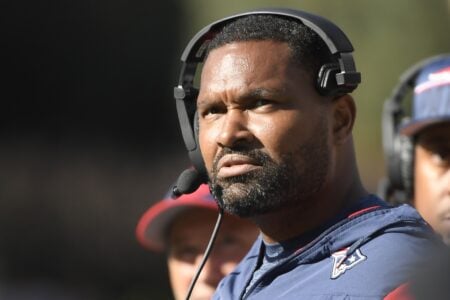zydecochris
2nd Team Getting Their First Start
- Joined
- Mar 11, 2007
- Messages
- 1,644
- Reaction score
- 2,718
Since 2001, New England has made the playoffs twelve times, appearing in 9 conference championship games and making it to the Super Bowl on six occasions. At this point, the Patriots have won the Super bowl four times over a fourteen-year span. By these metrics, if the New England Patriots were a poker player, they would have made nine out of 15 final tables, cashed six times, and gone on to play heads up for the title 6 times, so far winning four!
Yet Chase Stuart of footballperspective.com asks the question: how many Super Bowls should the Patriots have won?
Stuart calculates the odds of the Patriots winning the Super Bowl 2001 - 2014 according to expected winning percentage and point-spread betting. Here are his findings:
So in 2001, 2003, 2004, and 2014, the Patriots should have been expected to win 0.754 Super Bowls. Instead, the team won 4.000! How insane is that?!?
But what about the other eight years? According to Stuart, the ’05 Patriots had a 10.2% chance of winning all the games in the postseason, 06' Patriots had a 7.1% chance of winning all the games in the postseason, 07' Patriots had a 57.5% chance of winning all the games in the postseason, the 09' Patriots had an approximate 3% of winning all the games in the postseason, 10' Patriots had a 33.7% chance of winning the postseason, 11' Patriots had a 33.9% chance of winning it all, the 12' Patriots had a 26.6% of winning all the games in the postseason, and the 13' Patriots had a 12% chance of claiming the Super Bowl)
If put on a chart, the numbers would look like this:
As you can see, the Patriots massively overachieved from 2001 to 2004 (other than missing the playoffs in 2002), and then the team underachieved in the postseason for about a decade (other than missing the playoffs in 2008), winning no Super Bowls despite being expected to win about 1.8 of them.
But as Stuart points out, if you sum the Super Bowl probabilities for New England in each postseason, the Patriots should have been expected to win about 2.6 Super Bowls from ’01 to ’14, instead of the 4.0 they actually won.
Great thread.


















